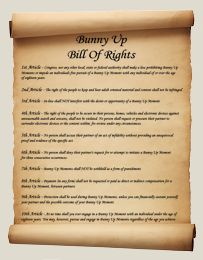 |
 Follow Us On Facebook And Twitter By Clicking Below!

|
Being Honest In Your Relationship!Honesty is a key element and it involves truthfulness, having integrity and being able to admit when you are wrong. Keeping things from your partner, having secret relationships or engaging in manipulations, persuasion or coercion tends to destroy the trust within a relationship and can be extremely detrimental. There are seven steps to being honest. Understanding the steps and incorporating them into your daily lives will help you build a wonderful relationship and live a much more enjoyable life 
The 7 Steps Of Honesty: 1. Understand Dishonesty 2. Acknowledge Dishonesty 3. Think Honestly 4. Practice Being Honest 5. Exercise Tact 6. Balance Full Disclosure & Privacy 7. Accept Being Honest
Being honest is not always easy, but it can reinforce trust and is an essential element to building a wonderful relationship. Without incorporating honesty into your relationship, there will always be doubt and you may encounter a number of additional problems within your relationship with each passing day. Follow the steps below to incorporate honesty into your daily life and reap the rewards of a wonderful relationship and a good night's sleep! 1. Understand Dishonesty - Understanding dishonesty and how it is used as a tool is essential to living an honest life. People use dishonesty to minimize conflict, shift blame to others, avoid embarrassment and avoid responsibility. 2. Acknowledge Dishonesty - Acknowledging your previous transgressions will help you identify patterns of dishonesty and help you avoid future transgressions. This will also help you identify potential weaknesses. Dishonesty tends to come from fear. If you identify your fears, face them and work to overcome them, then you will be better prepared to overcome dishonesty and live a better life. A large segment of the population engages in dishonesty because they fear what others may think of them. If they can either change their ways by making better decisions thereby avoiding disapproval or learn to not worry what others think about them, then they will be more inclined to be honest on a regular basis. 3. Think Honestly - It may seem simple, but thinking honestly on a regular basis and avoiding dishonesty as much as possible will develop a pattern of honesty. Being honest reinforces trust and avoids future issues regarding conflicting stories. 4. Practice Being Honest - Being honest is not always easy, but it's the right thing to do. There is a direct correlation between being dishonest and having to deal with a wide range of problems associated with dishonesty. 5. Exercise Tact - We all know that when you are brutally honest, you can hurt someone's feeling, cause unnecessary pain and even destroy relationships. Using tact when being honest can be the difference between working to improve a situation and making things much worse. If you feel there is a need to be honest and you are confident your honesty will hurt someone, tactfully deliver your honesty with a healthy dose of love, appreciation and affection. This will ease the pain from the truth and will give the recipient an opportunity to be more accepting of the truth and possibly take corrective measures if possible. 6. Balance Full Disclosure & Privacy - Being honest doesn't always mean you need to provide full disclosure of your personal business. There are times when full disclosure is not necessary and may cause additional problems down the road. Understanding the necessities of providing full disclosure or maintaining privacy can be challenging at best and experience usually provides the best measure. 7. Accept Being Honest - The truth may hurt at times, but it builds character, credibility and trust. It's not easy to be honest all the time, but it's an ongoing process that will challenge you and reward you each and every day.
|
Copyright © Bunny Up, LLC. All Rights Reserved. |


